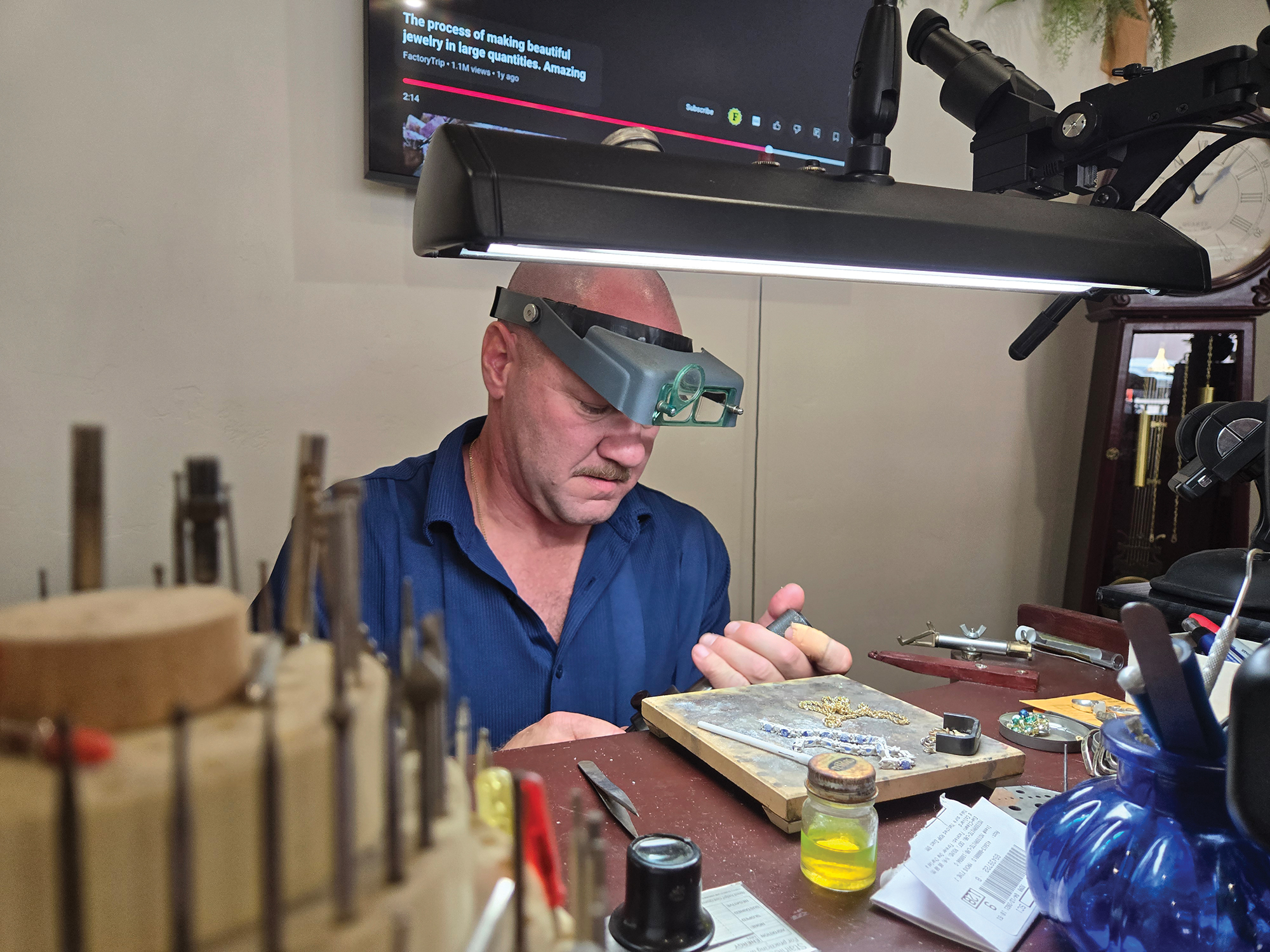It turns out ticks have their place, including the washing machine
Published 12:07 pm Friday, April 3, 2009
My wife Lisa is friendly, caring and nurturing.
Except with ticks.
Suffice it to say that if Lisa saw a tick drowning (I’m presuming
here, as my knowledge of ticks is scant, that ticks can be drowned) she
wouldn’t throw it a life preserver.
Well, now that I think about it she might throw a life preserver.
Only she’d aim it at the tick rather than near the tick, her goal being to hasten the drowning rather than prevent it.
Lisa has never shown, at least in my presence, the barest hint of affection toward arachnids in general.
(Her disdain is leavened with fear, however, and she generally leaves to me the task of dispatching spiders that get into our house.)
Yet her particular loathing of ticks seems to me conspicuous because it’s so starkly different from her regular personality.
A couple weeks ago, not long after she left for the grocery store, Lisa called me on her cell phone. She sounded upset, and I was at first worried that she had been in an accident.
Actually she had found a tick crawling on her while she was in the store.
We had gone hiking earlier that day in the sagelands east of town. Lisa asked me before we started walking if I thought the ticks had come out of hibernation or returned from the Bahamas or ceased doing whatever it is they do during winter.
I said, with undue confidence, that I didn’t think so (as I mentioned, I’m no expert on anything that has an exoskeleton).
I suspect it was her disgust over my mistake, more than actual fright, that prompted her to phone me.
I can’t say as I blame her.
If I hadn’t been so certain in my tick prediction, Lisa would have checked her clothes before we even got into the rig to drive home from the hike. She almost certainly would have found the tick then.
(And Peter DeFazio thinks those airport screeners are a tad too zealous. That’s because he’s never seen Lisa pat down a pair of pants that have traveled recently through tick-infested country.)
When she got home from the store Lisa went right off to take a shower.
She also crammed into the washing machine every garment that either of us had worn during the hike.
Lisa told me that according to a pamphlet she had gotten from the OSU Extension Service, your average tick (and, apparently, mine) can easily survive a standard wash cycle.
(Which probably answers my question about drowning. Although I’ll bet a dollop of bleach would at least make their eyes water.)
What the little buggers can’t handle, though, is a spin in a clothes dryer set on high heat.
Lisa emphasized the part about high heat. Apparently you have to get serious about the temperature if you want to kill ticks.
Last weekend we went hiking again, this time out by Salt Creek, between Baker and Keating valleys.
It was a dreary sort of day, and rain pelted us most of the time.
The damp weather did not impede the ticks. This is hardly surprising, considering conditions were much less wet than inside a washing machine.
Anyway, once we were back inside the car Lisa quickly found half a dozen ticks crawling on her sweatpants. I plucked them off and flicked them out the window with my index finger.
My own haul was a mere two ticks. This made the trip one of the few in which someone who accompanied me attracted more ticks than I did.
(Diminutive bloodsuckers, whether equipped with six legs or eight, have what seems to me an unhealthy affinity for my plasma and hemoglobin.)
During the ride home, Lisa finally got right to the point about ticks.
She posed the question (and I’m paraphrasing here, although only slightly): “What purpose do ticks actually serve?”
As I had recently been burned by my ignorance of ticks, I told her I didn’t know.
This, besides being a safe answer, happens to be true.
Having since looked into the matter in the haphazard manner typical of Internet searches, I’ve concluded that ticks, in one task at least, excel.
They spread diseases with a facility that even a 14th century flea would admire.
I suppose ticks might in that way contribute to the natural order by helping to control populations of the warm-blooded animals from which they obtain their sustenance.
Or perhaps, as some joker suggested on a Web site, their sole purpose, and here I quote, is: “they’re effective at giving me the heebeegeebees.”
Frankly I don’t much care.
(Although I was pleased to finally learn how to spell heebeegeebees.)
I harbor for ticks nothing like the resentment that compels my wife to try to extract every last degree from our dryer to ensure any pests get good and cooked for having the temerity to hitchhike on our pants.
At most I can muster a slight annoyance when I have to spend a couple minutes poking around the inaccessible parts of my anatomy in search of sluggishly crawling black spots.
Probably I give ticks a pass because I’ve never found one burrowing into my skin. Nor have I ever, so far as I know, contracted any of the dozens of unpleasant maladies which ticks have proved so adept at inflicting.
Although I wouldn’t be tempted to write them an epitaph were ticks extirpated from Baker County, the tiny vermin have, in a peculiar way, become a bellwether for me.
Ticks are just as surely symbols of impending spring as grass widows and balsamroot and the other early blooming wildflowers.
But I don’t think Lisa agrees.
I haven’t, at any rate, known her ever to photograph a tick, or to put a handful into a water-filled vase.
Of course with her newly acquired knowledge she wouldn’t waste water on ticks.
I’d be worried, though, if I were a tick and I saw the door open on the dryer’s black maw.
Jayson Jacoby is editor of the Baker City Herald.









